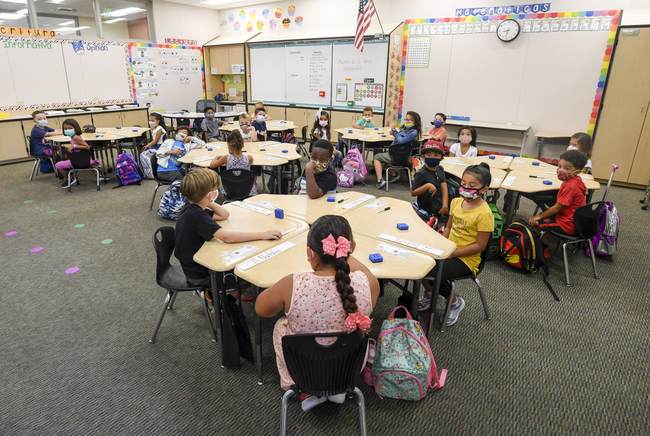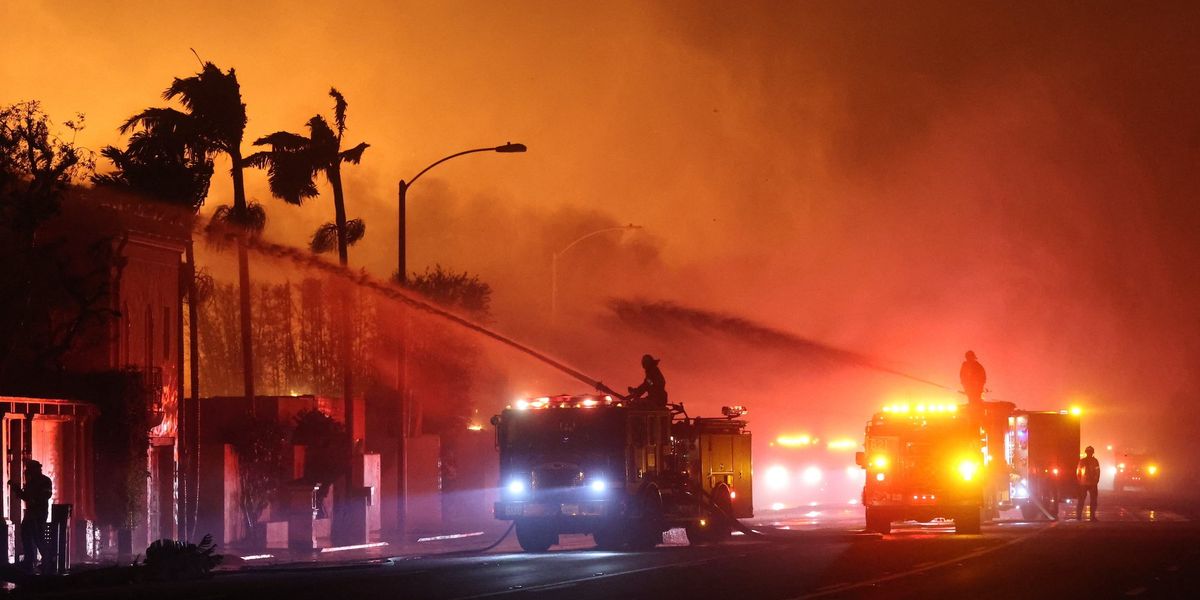It’s no secret that the public school system in Baltimore, Maryland has been a mess for a while now. Endemic issues of perpetual absenteeism, permissive teachers, and high rates of students failing to meet state minimums in reading and math have plagued the schools. The situation grew worse during and after the pandemic, with standards for grading and attendance being reduced dramatically or removed entirely. Unfortunately, the situation has not bounced back noticeably since the pandemic passed. But is that finally about to change? CBS News in Baltimore reports that the Anne Arundel County Public School system is bringing back grading regulations this year that will be tougher and “put more emphasis on student responsibility.” Let’s find out what that actually means.
The Anne Arundel County Public Schools are altering their grading regulation that will put more emphasis on student responsibility.
Superintendent of Schools Dr. Mark Bedell said the alterations will start this upcoming school year which will focus on increasing student responsibility and providing more time for teachers to focus on instruction…
At the middle and high school levels, the grading scale now defines an E as 50% to 59%
“Just as our teachers have a responsibility to deliver quality instruction, our students have a responsibility to get their work done on time,” Dr. Bedell said. “Our school system granted a great deal of leniency during the pandemic, but the pandemic is over and we need to strengthen the regulations and allow teachers to focus on instruction and not as many re-dos of student work.”
The linked report has a full list of summaries of the changes. Much of this sounds like it carries the potential for improvement, but the devil is always in the details, as the saying goes. During the pandemic, they instituted a program of “re-dos.” If a student is given an assignment and they completely fail at it or don’t even return it, they are given the opportunity to review the material and try again, hopefully producing a better score that can be recorded. That seems generous, but it’s better than simply giving them a passing grade if they don’t even bother returning the work, which was happening for a while. But it’s not being eliminated. They’re simply reducing the number of times they can do this during any grading period by one.
The schools will continue to accept late returns of assignments, but a penalty will be assigned to the final score. That seems okay. Teachers will still be able to determine that a student made a “good faith effort” to complete an assignment and qualify for a 50% grade. That means that many will still receive a “passing” grade of “E” because they have to fall below 50% to qualify for an F.
This still sounds extremely sloppy and it leaves the door open for individual teachers and counselors to give a free pass to children who were either not properly provided with the material needed to succeed, failed to put in the effort, or simply didn’t show up. So is the Superintendent of Schools truly “fixing things” and attempting to raise the standards? Or is he getting the media to paint a picture making it look like he’s trying to fix them? Sadly, the details strongly suggest the latter.
They needed to do something, or at least look as if they were doing something, because the families that really care and want their children to succeed have been complaining, and for good reason. Hard work is required for anyone to get ahead in this world and that’s always been the case. But there aren’t many colleges that will accept applicants with lower percentile scores and if their records have been faked, they won’t last when it becomes obvious that they can’t master even the most basic coursework. Entry-level jobs with even minimal educational requirements will rarely be given to someone who can’t even fill out the job application correctly. Beyond that, what options are left for young people trying to enter the workforce today? Back in my day, you could at least go to work on a farm, but much of that work has been automated in the modern era. And even if you find such a position, you don’t build up generational wealth that way unless your family owns the business. All that may leave for these kids is a place with the gangs on the streets. And the public school system may be unwittingly feeding more grist into that terrible mill.
Read the full article here





![Pamela Anderson Reveals Near-Attack on Plane Over Mistaken Identity [WATCH] Pamela Anderson Reveals Near-Attack on Plane Over Mistaken Identity [WATCH]](https://www.lifezette.com/wp-content/uploads/2025/01/2025.01.09-09.48-lifezette-6780444948e8c.jpg)



![Biden Celebrates Great-Grandchild, Dodges Reporters During California Wildfire Briefing with Newsom [WATCH] Biden Celebrates Great-Grandchild, Dodges Reporters During California Wildfire Briefing with Newsom [WATCH]](https://www.lifezette.com/wp-content/uploads/2024/09/2024.09.03-07.26-lifezette-66d762d64ebbd.jpg)